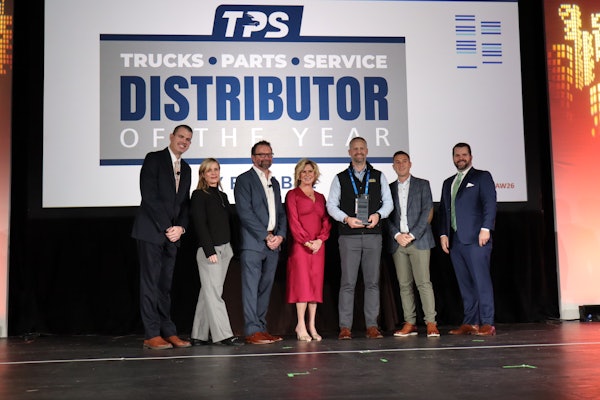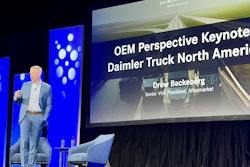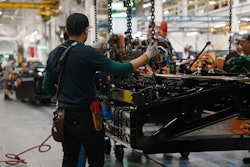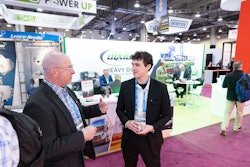With the trucking industry constantly changing, the aftermarket truck parts and service industry must change, too. Highlighting the changes and the current and future opportunities for parts and services shops was Derek Kaufman, managing partner, Schwartz Advisors and president of C3 Network LLC.
“Trucking safety is a huge area of opportunity here,” says Kaufman, who led off a series of presentations Monday, Jan 22, at Service Opportunity Learning Days (SOLD), which preceded Heavy Duty Aftermarket Week (HDAW) 2018 in Las Vegas. “Lane-keeping and forward-collision [features] are big in trucking and will continue to be. More and more, you’re seeing suppliers enter this market.”
Kaufman says the technology for forward collision avoidance can be a simple warning that the driver is getting to close. However, forward collision avoidance can include active control that slows the truck or brings it to a complete stop. He adds that National Highway Transportation and Safety Administration (NHTSA) is looking at this very closely.
“[NHTSA] believes, as it looks at truck crashes, that there’s a very high percentage of rear-end collisions with cars, and they believe this could be a major thing for safety in the United States,” Kaufman says. “We anticipate them mandating this. We also think this is a service opportunity because this technology can be put on a three-year-old truck.”
Another opportunity for truck service providers is the cleaning and replacement of aftermarket diesel particulate filters (DPFs). An entire industry has built up around cleaning and replacing DPFs, according to Kaufman. “Truck dealers buying cleaning stations, specialty companies forming to focus solely on DPF, it’s a real market opportunity. For $8,500 you can get a very good piece of DPF cleaning equipment,” he says.
Kaufman also pointed to the substantially increased number of trucks that require a jumpstart because so many electrical parts have been added to the vehicles. These parts are drawing off the battery and the alternator systems simply are not keeping up. The result is a rise in the use of stacks of ultra-capacitors, which are a battery system more about power rather than long energy. Ultra-capacitors provide that power to turn the engine over.
“The idea is you place the ultra-capacitor in your battery box, replacing one of the batteries … and that ultra-capacitor is strictly used to start the engine and protect the other batteries from degradation,” Kaufman says. “We think this is a new area in the industry and will be on the uptick in the next three to five years. It’s a great aftermarket opportunity because it’s a quick swap.”
Providing yet another potential profit stream was Doug King, Meritor director, technical, training and sales. During his presentation, he explained electronic stability control (ESC), which is now required on all trucks. Using SmartTrac stability control systems by Meritor WABCO to demonstrate, King explained all facets of addressing ESC on trucks. Because of regulations, helping the industry address ESC is a great service to offer, he says.
Also, during Monday morning’s session, Erica Eversman, chief counsel at Vehicle Information Services, explained ways for service shops to protect themselves from liability when making proper repairs and how important it is to not bow to the pressure of insurance companies.
“You are the professional repairer. You are the expert in the repair and that means the liability, as well as the expertise, is yours – and this is where we get into an enormous problem because we have insurers trying to direct how vehicles will be repaired without accepting any of the liability for their decisions. That is a fundamental problem,” Eversman says. Repair shops are going to have a problem because they and the insurance companies are going to have two mutually exclusive goals. The insurance company wants to pay as little as possible and the customer wants to get the best possible repair, she adds.
Eversman provided several “musts” for repair shops to protect themselves, which include writing their own damage analysis, following OE recommendations, not changing their damage analysis to match that of the insurance company unless the insurer’s estimate is correct, don’t delete from their final invoice items the insurer refuses to pay for, develop standard operating procedures and stand by their determination.










